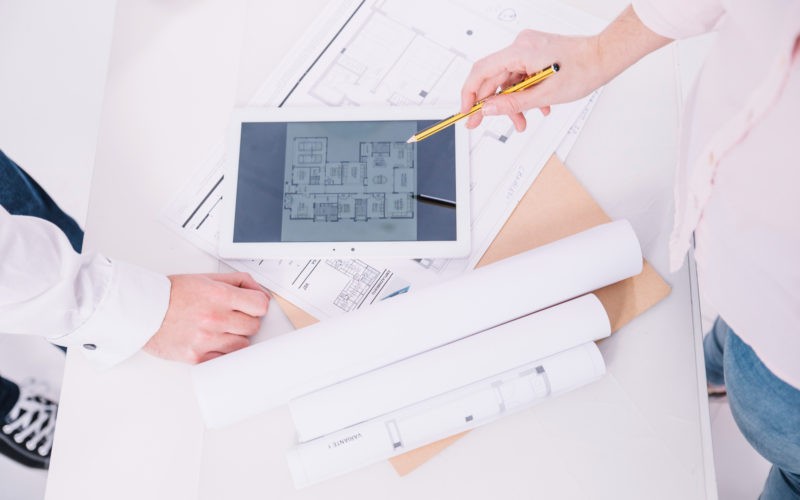Making sure quality control is maintained in commercial construction projects holds great significance for the final success of a build. Quality control covers different parts like materials, workmanship, following codes and standards, plus managing the whole process of constructing. This article will discuss main strategies to guarantee quality control by looking at things such as planning, picking contractors, checking material quality on site and making sure good communication is happening. Also, we will discuss the need for specific materials such as insulated metal roofing to uphold top-quality levels.
Planning and Design
Quality control starts right from the planning and design stage. A good plan makes sure that everything is planned precisely, reducing the chance for mistakes and extra work. While designing, it’s important to work closely with architects, engineers and project managers to match up the aims of the project with quality standards. In this phase, complete feasibility studies should be done along with site analysis and a detailed project scope. It is also important to set up clear quality benchmarks and standards at an early stage because they form the base for all of it. When we define our criteria like this, everyone who participates comprehends what kind of quality is anticipated from the project. This makes sure that it matches or surpasses these levels.
Selecting the Right Contractor
The choosing of the correct contractor is very important for quality control in commercial construction. The knowledge, experience, and reputation of a contractor have a big effect on how good the work is done. It’s crucial to select a contractor that has demonstrated expertise in similar projects and follows high-quality standards. Doing complete background checks, going through old projects and getting references are important. It is also crucial to make sure the contractor has a license, insurance and follows all local rules and building codes. A good contractor will have set up quality control systems, using experienced workers who can do excellent work efficiently.
Material Quality and Standards
The materials used in the construction greatly influence how long-lasting, secure, and good overall final structure is. It’s important to get materials from reliable suppliers and verify if they meet industry standards as well as project requirements. Insulated metal roofing is often chosen for commercial buildings because it endures well, uses less energy and needs little maintenance. Verifying that these materials meet quality requirements doesn’t just improve the building’s function but also helps in saving costs over time. By checking and testing materials when they are delivered, we can make sure their quality is good. This stops low-quality substances from damaging the project.
On-Site Supervision and Inspection
To maintain quality control, it is crucial to have constant supervision and inspection at the site. Project managers and quality control inspectors are very important in this process; they make sure that the work being done matches with what was planned for a project according to specifications and standards. Frequent visits to sites for inspection can help find problems soon enough before they become big issues. These inspections are about confirming good work, making sure safety rules are followed, and checking if the work matches with design plans. Any problems or flaws discovered during inspections need to be recorded and fixed quickly so there won’t be any delays in progress along with extra expenses.
Effective Communication and Documentation
Good communication is very important in quality control for commercial construction. When everyone involved understands each other well, it helps to make sure that the project proceeds smoothly. Architects, contractors, suppliers and clients all need to communicate openly and clearly with one another so they can work together effectively towards a common goal. Regular meetings or updates help keep everyone informed about how things are going on the project – what has been done so far, any possible issues that might come up and changes in scope or time frame if needed. Documentation is also very crucial, as it keeps a history of all decisions, modifications and checks made throughout the project. Having detailed records aids in monitoring if the project adheres to quality standards set and provides useful data for later projects. It also helps with responsibility and openness, making sure that any problems can be traced back to their source and solved quickly.
Addressing Defects and Issues
Even though you try your best, there can still be flaws and problems that come up during the building process. It is very important to recognize these issues quickly and handle them effectively for maintaining quality control. Having a methodical way of finding, writing down and fixing defects makes sure they don’t harm the project’s trustworthiness. Use a strong process of managing defects, which involves checking frequently and a reporting system that is easy to understand, this will help in finding and solving problems quickly. Make sure all parties related to the work such as contractors, subcontractors or suppliers are involved. This way we can make certain that we address the main issue causing defects and not only treat its symptoms. Such an approach lowers chances for repeated issues while also keeping up with quality standards of the project.
Training and Skill Development
Training and developing the skills of your construction team is like taking a forward step to guarantee quality control. People who are well-trained and skilled have higher chances of delivering good-quality work while sticking to safety guidelines and standards. Offering frequent training about new construction methods, tools, as well as materials can help in keeping the team up-to-date and skilled at completing tasks with high quality outcomes. Moreover, by promoting a culture of always getting better and welcoming input from the team, we can find creative solutions and enhancements in the quality control process. This, combined with appreciating and giving incentives for high-quality work, helps keep our team motivated to maintain top standards all the time.
Conclusion
For quality control in commercial construction, the process is broad and includes careful planning, diligent supervision and efficient communication. To improve this process for businesses – who often work on large projects like buildings or offices – it’s important to concentrate on certain areas: planning and design; selecting an appropriate contractor; maintaining good quality of materials; continuous supervision at the site; clear communication channels with all parties involved; dealing with defects promptly plus investing in training workers to increase their skills. Using good materials also helps improve the project’s durability and performance, such as having a strong insulated metal roofing to enhance a building’s ability to resist heat changes. In conclusion, having a firm dedication to quality control is crucial for guaranteeing that the project ends successfully and establishes an image of high standards in our industry.












